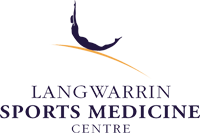Myotherapy is a form of manual therapy. It involves evidence-based assessment, treatment and rehabilitation techniques to treat what is known as neuromusculoskeletal (nerve, muscle and joint) pain and dysfunction to aid individuals in returning to full mobility and health.
How is Myotherapy different from Physiotherapy and Remedial Massage?
Myotherapy specialises in but is not limited to, the following treatment techniques; including Myofascial Release, Trigger Point Therapy, Dry Needling, Myofascial Cupping, Joint Mobilisation and finally, Passive Stretching.
The key similarities of Myotherapy and Physiotherapy are the treatment techniques that are utilised to alleviate conditions that are commonly observed by both modalities. Put simply, Myotherapy focuses on the Musculoskeletal System and the ways in which daily factors or lifestyle commitments can lead to pain or dysfunction.
Physiotherapist primarily treat conditions that impede on movement and functionality. This is done through the implementation of various techniques for recovery, pain relief and injury management or prevention. They specialise in thorough examination and diagnosis of a wide range of conditions. The exercise rehabilitation aspect of the consultation is central for most Physiotherapists, partially focusing on the manual treatment side also.
Remedial Massage differs from both of the above in that it is a suitable treatment option for many non-specific injuries or pre-diagnosed conditions. Non-specific problems can include muscle tightness, soreness or fatigue.
Who can benefit from Myotherapy?
Myotherapy treats a wide range of conditions, including the following:
• Dysfunction or soreness due to poor posture
• Occupational injuries
• Sport-related injuries
• DOMS (Delayed onset muscle soreness)
• Joint & vertebral dysfunction
• Headaches/migraines
• Pain due to stress or tension
• Acute and chronic stiff or painful neck
• Acute & chronic hip or back pain
• Sciatica and other neuropathies
• Shoulder impingement, Frozen shoulder & rotator cuff injuries
• Carpal Tunnel syndrome
• Golfers & Tennis Elbow
• Leg, knee and foot pain including- Plantar Fasciitis, Runners knee and Patellar tracking disorder.
Along with treating many other conditions, your Myotherapist will work directly with you, to identify factors that may aggravate your condition and form a treatment plan to improve the outcome. They will also provide you with education on how to overcome and progress from the pain and dysfunction experienced.
What can I expect from a Myotherapy session?
A consultation with a Myotherapist will typically involve subjective questioning, along with a physical evaluation examining impacted muscles, joints or nerves to gain a clinical impression of the client’s condition. This may be found through postural observation, range of motion or orthopaedic testing. For the majority of the consultation, Myotherapists will provide hands-on techniques such as Soft Tissue Manipulation, Myofascial Release, Trigger Point Therapy, Dry Needling, Cupping and Joint Mobilisation may be applied and will be dependent on which is most suitable for the individual needs of each client. Combined with corrective exercise and stretching, this all forms part of a treatment plan set out by your Myotherapist.


(03) 9789 1233
(03) 9789 8828
83-85 Cranbourne-Frankston Road
 Open Hours
Open Hours
